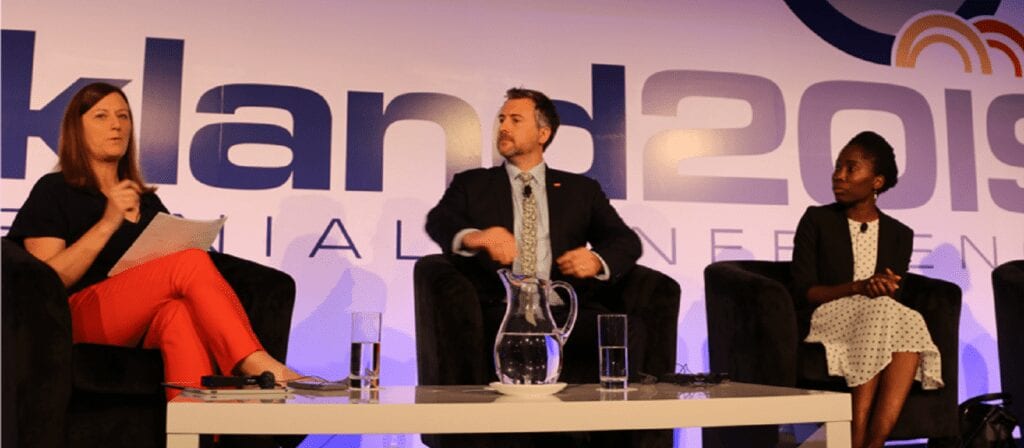According to ICMIF data, ICMIF members are outperforming not only shareholder model insurers but also the total mutual and cooperative insurance market, globally. ICMIF analysed eight members who were outperforming their national markets and created case studies about how they leverage their mutuality. ICMIF also completed its second audit of the reputation of the global cooperative and mutual insurance sector and identified that in terms of reputational credentials – social, governance, environmental and financial – mutuals are far more balanced, while the shareholder model is more heavily-weighted to promoting financial performance. A more balanced profile is considered a strong indicator for business sustainability and resilience.
These four case-studies present different examples of how ICMIF members leverage and promote their mutual/cooperative difference.
A local and community-based insurer
TUW SKOK (Poland) has discovered that mutuality is multifaceted and that commercial and private clients needed very different propositions. In Poland, Credit Unions/corporate members understand mutuality. However, individual health customers do not want to buy a share in the business to become a member nor were they interested in coming to member meetings/AGMs. They associated “mutuality” with every sector but financial services. Mutuality also had a stigma due to previous governments forcing private businesses into a mutual structure during politically turbulent times.
The answer was to talk to customers and ask them what they want from a national member-owned insurer. What they valued was the truly local, community-based nature of TUW SKOK: “one of us”. This was a great alternative to the 70% of market which are international players. This proposition works extremely well as a differentiator without talking about the word “mutual”.
Customer ownership, profit sharing and long-term financial benefits
PPS‘ (South Africa) CEO Mike Jackson believes that mutuals have a huge advantage over stock companies as they do not have to pay shareholders. When Mike joined PPS, it had not leveraged this advantage and it was not communicating its profit-share scheme to its members.
South Africa only has two legal mutual insurers, so there is a low understanding of mutuality in the country. PPS therefore stopped using the word mutuality as people do not understand it, and do not not value it. At PPS, members can join the Board via professional associations or directly, but few members want to be involved. The PPS target market is busy professionals and they do not have time to get involved in their insurer’s governance. Therefore, while this is a feature of its rules, it is not promoted as a key benefit of mutuality.
Shareholder companies in South Africa also promote enticing and immediate rewards programmes (e.g. vouchers, experiences, money-off schemes), so PPS’s profit-share scheme – which gives back at retirement – is less attractive to young potential customers. Its advertising focuses on ownership of the company by the members and the integrity of the organisation’s member-centric decision making.
Where the profit-share messaging does work is in customer retention: PPS regularly share case studies with its members about the kind of final profit-share payments individuals are getting. In many cases the sums involved are life changing.
Proximity to the customer
In Australia, awareness of mutuality is also low. The Capricorn Society is a cooperative and was founded 40 years ago. It was established to ensure motor-shop/garage owners had the ability to purchase motor parts at a fair price. The mutual insurance arm (Capricorn Mutual) sells risk protection products and specialises in commercial insurance aimed at the cooperatives’ members.
The more products the members purchase, the more dividends they receive. They have commercial insurance brokers who visit their members at least three times-per-year to fully understand the risk. While this is seemingly costly, this makes them unique: that personal service is highly valued.
Their Board is mostly composed of members and if anyone is unhappy about a claims decision it can be taken to the Board for review. Claims stories are shared in their member magazine to encourage the cooperatives members to join.
Their great service and high customer satisfaction often results in members using social media to promote the mutual and encouraging others to join.
Giving profits back to the community
Mutuality in the UK is well established concept, but only 5-7% of insurers are “mutual” – and this has declined over the years. Simplyhealth is a health insurance/cash plan company, established in 1872. Success in the market caused complacency – it stopped listening to its customers. When CEO Romana Abdin joined, the company went back-to-basics to establish what makes it different and what is valuable to its customers.
Simplyhelth established that what matters most to its members is making the most of life and this required the mutual to connect emotionally with customers. For Simplyhealth, it is not about promoting mutuality, it is about promoting a business that shows it relates to what matters to people. The organisation is passionate about talking about the difference which insurance makes to lives, as opposed to the technical details of the policies.
For more than a century it has used a portion of its profits to make donations via charitable organisations. In recent years this equated to 1% of their profits, but from 2015 this was escalated to 10% of profits to charity. This is unique in the UK market. Simplyhealth works with a range of charities, so that it stays close to what the nation really cares about. The opportunity to get involved and volunteer with the charitable partners also helps with recruiting quality talent.
Session panellists:
- Grzegorz Buczkowski, CEO, TUW SKOK (Poland)
- Mike Jackson, Chief Executive, PPS (South Africa)
- Jim Glossat, CEO, Capricorn Mutual (Australia)
- Romana Abdin, Chief Executive, Simplyhealth (UK)
- Liz Green, Senior Vice-President, External Relations, ICMIF, moderator





